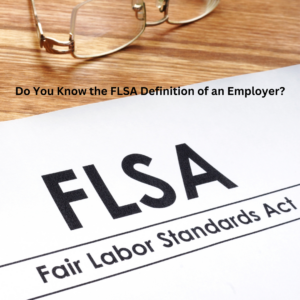
A June 20, 2024, decision from the 11th U.S. Circuit Court of Appeals holds vital information for all employers. The case looked to decide when a mid-level manager or supervisor is personally liable for wage violations.
In this situation, a hotel manager was held individually liable for violating the federal wage and hour law under the definition of “employer.” The ruling was shared in a blog post from JD Supra.
The Breakdown
A clerk worked at various hotels owned by the same owner within the state of Alabama. The clerk mainly worked the night shift and averaged 62 hours a week. He received compensation in the form of monthly paychecks and onsite lodging. This arrangement continued for nearly a decade. When the relationship broke down, the clerk sued the hotel entity, owner and the owner’s son for wage violations.
The clerk alleged he was not paid the federal minimum wage or overtime premiums, which was a violation of the Fair Labor Standards Act (FLSA). The FLSA allows an employee to sue for such a violation, and the Act broadly defines “employer.” In this case, “employer” is “any person acting directly or indirectly in the interest of an employer in relation to an employee.”
Defining “Employer”
- Overseeing day-to-day operations.
- Some direct responsibility for the supervision of an employee.
- Control over significant aspects of the company’s day-to-day activities.
- Generate tasks for employees.
- Set work schedules.
The Argument
The owner’s son countered by saying he was not an “employer.” Because he is not an owner, he lacked control over the compensation of the clerk, nor did he have decision-making authority over the compensation. The son also said he did not control the hotel’s finances. He too was a wage-earning employee of the hotel. The son lived onsite at the hotel, like the clerk.
Individual Liability
The count found both the owner (father) and the son individually liable and in violation under the FLSA. Ultimately, the 11th Circuit ruled that the son met the definition of “employer.” In addition to the father, the son had the ability to sign paychecks. The son was also involved in rental rate discussions and had the ability to adjust rates, along with the father.
“Although owners and corporate officers are more susceptible to personal liability because they are more likely to exercise operational control, the broad definition of an employer under the act does not limit individual liability to officers and owners. We must consider the circumstances of the whole activity.” – 11th Circuit Court of Appeals
Cautionary Tale
- Clearly understand the FLSA definition of “employer”.
- Include information in annual training.
- Require employees to report discrepancies in paychecks.
- Encourage prompt reporting.
- Empower managers to provide feedback to leadership.
- Remedy issues quickly.
- Review pay practices and timekeeping processes.
- Review non-exempt classifications.
- Review application of exemptions.
- Document, whenever necessary.
This cautionary tale of employer liability is brought to you by Staffing Kansas City, a full-service employment agency assisting employers and job candidates in the Kansas City Metro area.


